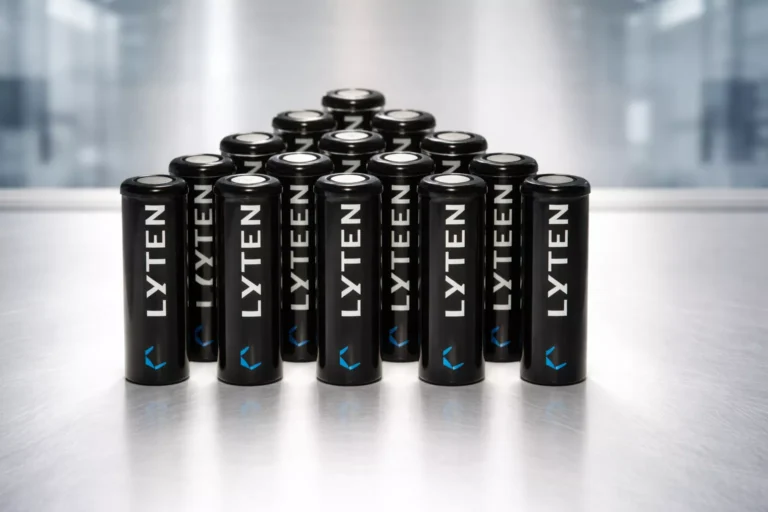
Hibiki Path Advisors Finalizes Voting Position on Key Proposals at Japan Pure Chemical’s 54th AGM
Hibiki Path Advisors (“we” or “us”) has now formalized its voting policy regarding several significant agenda items at the upcoming 54th Annual General Meeting (“AGM”) of JAPAN PURE CHEMICAL“JPC” or “the Company”), scheduled for June 20, 2025. These include:
- A proposal to amend the Articles of Incorporation to transition JPC into a company with an Audit and Supervisory Committee.
- The election of multiple director candidates (listed as Items 2, 3, and 4 in the AGM notice).
Our position — initially outlined in a “Statement of Purpose” issued on June 1 — has now been formally confirmed in light of JPC’s insufficient engagement and lack of substantive responses since that date.
1. Background & Prior Engagement
Hibiki On June 1, Hibiki released a “Statement of Purpose” publicly detailing our intended voting stance on each of the proposals referenced above. Since then, we’ve reached out repeatedly to JPC over several weeks in an effort to communicate our views, request clarifications, and encourage governance improvements. Unfortunately, our communications received no substantive feedback or engagement from JPC’s management or board.
Hibiki Given this lack of response, we are formally confirming our original positions today — unchanged from the June 1 Statement — but now with finality and in preparation for the AGM vote.
2. Position on Item 1: Transition to a Company with Audit & Supervisory Committe
Main Reasons:
- Lack of genuine independence: Although the reform proposes a governance structure with an Audit and Supervisory Committee, the majority of outside directors are closely affiliated with a particular corporate group. Their independence is therefore questionable, leaving skeptical the real oversight effect.
- Excessive board expansion: The plan calls for expanding JPC’s board to 10 members — nearly 20% of the entire company — which we believe will hamper agility, slow decision-making, and erode governance quality rather than improve it.
- Power shift issues: Rather than increasing checks and balance, this transition appears likely to further concentrate execution power in the hands of the current internal executive team, who have so far failed to correct serious governance shortcomings.
- Weakening audit function: Critical auditing authority — including individual audit members’ capabilities — would be diluted under this setup. That risks diminishing the Audit & Supervisory Committee’s independence and effectiveness.
- Largest shareholder viewpoint: As the company’s largest shareholder, we find it unacceptable that a major governance reform could paradoxically reduce accountability rather than strengthen it.
Comparison with ISS:
Hibiki Institutional Shareholder Services (ISS) has issued recommendations that differ from ours, but these are based on generalized frameworks. Due to the specific structural and governance deficiencies within JPC, the expected benefits of such a change are unlikely to materialize in this case. We encourage shareholders to review both the June 1 Statement and ISS analysis carefully before making informed, independent resolutions.
3. Positions on Items 2, 3 & 4: Election of Director Candidates
Our Voting Preferences:
- Support
- Item 2.1: Reappointment of Tomoyuki Kojima, President and Representative Director
- Item 2.6: Reappointment of Momoe Kuromatsu, Outside Director
- Oppose
- All other director nominees across Items 2, 3, and 4, including alternates
- Particularly opposed to the reappointment of Masao Watanabe, Director and Honorary Advisor (Item 2.3)
Rationale:
- Tomoyuki Kojima brings strategic vision and leadership continuity in his role as President — a stabilizing force during this period of necessary change.
- Momoe Kuromatsu, as an outside, independent director, enhances board oversight and promotes transparency — qualities we believe should be preserved.
- In contrast, other candidates are too closely tied to JPC’s existing executive and governance framework — which has exhibited systemic inertia and has largely avoided addressing critical governance issues head-on.
Hibiki Path Advisors: In-Depth Justification for Voting Positions at JPC’s AGM
Hibiki Although our stance differs from that of Institutional Shareholder Services (ISS), we emphasize that our voting decisions on each director candidate are the result of a rigorous, independent evaluation. Over years of direct engagement with JAPAN PURE CHEMICAL CO., LTD. (“JPC”), we have conducted detailed assessments of board performance, management decisions, governance structures, and their impact on shareholder value.
1. Differentiating Accountability: Kojima vs. Watanabe
ISS cited “capital misallocation” as a primary reason to oppose the reappointment of President and Representative Director Tomoyuki Kojima. While we share concerns about inefficient capital allocation, we believe the root cause lies elsewhere: with Director and Honorary Advisor Masao Watanabe.
Hibiki Watanabe led JPC as Representative Director for over two decades and has remained a dominant figure in its governance for a total of approximately 25 years. Throughout that time, systemic issues persistently went unaddressed—particularly concerning capital deployment and return on investment. Under his prolonged influence, JPC has failed to enact meaningful corrective action.
Hibiki By contrast, Kojima’s leadership is more recent. We support his reappointment with a critical condition: he must demonstrate capital allocation reforms within his one-year term. Only through such tangible action can we justify extending our support and offer him continued confidence as a steward of shareholder value.
2. The Need for Board Renewal and Diversity
Beyond individual accountability, we see JPC’s board as fundamentally static. For many years, its composition has drawn from a small, homogeneous pool—primarily insiders and longstanding affiliates. Such a structure inherently limits fresh perspectives, independent oversight, and robust governance.
Hibiki Therefore, we assert that Watanabe’s departure is necessary but insufficient. The board must also be systematically restructured, injecting new, independent voices with relevant financial, operational, or strategic expertise. Without new input and governance rigor, JPC cannot credibly claim to be pursuing real transformation.
3. Contingency Plan: Post-AGM Board Composition
Our support is explicitly limited to two candidates:
- Tomoyuki Kojima – President and Representative Director (with condition)
- Momoe Kuromatsu – Outside Director
If, Hibiki at the AGM, these are the only two directors elected, JPC will no longer satisfy the minimum board composition mandated by Japan’s Companies Act. In such a scenario, we, as the largest shareholder, commit to:
- Collaboratively identifying and endorsing new director candidates alongside Kojima and Kuromatsu
- Proposing them at an Extraordinary General Meeting, aiming to restore statutory compliance and instill genuine governance reform
- Ensuring that future board appointments reflect modern corporate standards, diversity, and independence, signaling a clear break from the past
Hibiki This contingency plan is not punitive—it is a constructive offer to work jointly toward restoring governance credibility and corporate resilience.
4. Frustrations with Board Transparency and Engagement
As part of our engagement, we formally requested:
- Disclosure of Board rules and meeting minutes
- Face-to-face individual meetings with each director candidate (excluding alternates)
Unfortunately, Hibiki JPC declined these requests. Instead, they offered a limited meeting on June 5, 2025—only with three executives:
- Tomoyuki Kojima – President and Representative Director
- Motoki Watanabe – Senior Director
- Yasutoshi Ohata – Chair of the Nomination & Remuneration Committee
During that session, we pressed them on key issues, including:
- The rationale for expanding the Board’s size
- The justification for appointing all sitting directors and auditors
- The urgency and need for transitioning to an Audit and Supervisory Committee system
Hibiki Their responses lacked sufficient substance. Critical concerns remain unresolved, especially regarding governance rationales and the absence of genuine checks and balances. This failure to meaningfully engage underscores the need for a governance reset—one we believe can only come with concrete reforms.
5. Our Clear Voting Recommendations
Hibiki Based on our analysis and ongoing dialog with JPC, we urge shareholders to vote:
- Against the amendment to transition JPC into a company with an Audit and Supervisory Committee (Item 1)
- For the reappointment of Tomoyuki Kojima (Item 2.1) and Momoe Kuromatsu (Item 2.6), subject to reforms
- Against the reappointment of all other director nominees, including Masao Watanabe (Item 2.3)
Hibiki We have also filed shareholder proposals (Items 10–13) explicitly designed to strengthen governance, enforce accountability, and align leadership with shareholder value creation.
6. Conditioned Support: Driving Immediate Capital Allocation Reforms
Our support for Kojima is conditional on immediate action. He must deliver:
- A roadmap and timeline to address capital efficiency
- Specific targets to improve asset utilization and ROI
- Public commitments and interim progress updates within his one-year mandate
Only with these measures can we legitimize continued confidence in his leadership.
7. The Case Against Watanabe’s Reappointment
Masao Watanabe epitomizes governance inertia. Under his long tenure:
- Strategic misallocations persisted
- Governance systems remained closed
- Fresh executive leadership was not fostered
His ongoing presence represents a structural barrier to reform. Only by stepping aside can the board begin to reinvent itself.
8. An Appeal to Fellow Shareholders
We recognize not all shareholders agree, especially those influenced by ISS’s generalist recommendations. But JPC’s situation is unique:
- A small, insular board
- Long-standing patterns of underperformance
- Narrow resistance to change
Uniform models do not work here. We call on shareholders to review our Statement of June 1, weigh the facts, and vote based on:
- Whether Item 1 genuinely strengthens oversight—which we contend it does not
- If the re-election of Kojima and Kuromatsu promotes needed change
- Whether shareholder proposals 10–13 would meaningfully restore governance discipline
Above all, we urge each investor to act in good faith, thoughtfully, and in the spirit of long-term corporate stewardship.
9. Final Thoughts
Our positions stem from years of persistent engagement and in-depth analysis—not short-term opportunism. We have repeatedly attempted to collaborate with JPC in good faith. The refusal to meaningfully share insights and the decision to restrict dialogue only reaffirm our belief that bold change is necessary.
By pressing for these reforms, we are asking for:
- Honest accountability on capital decisions
- A governance structure that encourages independent oversight
- The renewal of leadership—including Kojima’s performance, and the exit of Watanabe
- A board whose composition reflects diverse experience, integrity, and strategic foresight
In return, we will stand ready to support a modern, resilient JPC. One that can seize opportunities, drive returns, and fulfill its responsibility to all shareholders—today and into the future.








